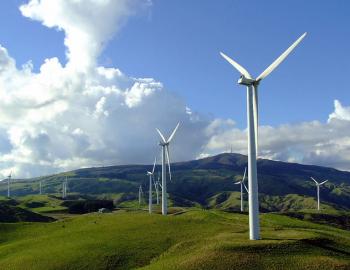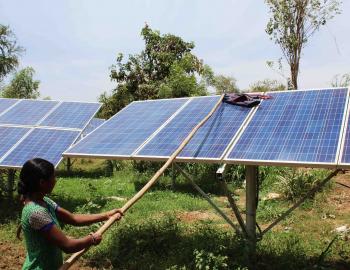Energy security as positive force for green growth in Indonesia?
Energy security as positive force for green growth in Indonesia?
Indonesia is facing serious and imminent energy security challenges and if these are not addressed adequately and soon, it will hamper economic development in the coming decades. Whilst energy security deteriorates, current energy investments are following a ‘business as usual’ fossil fuel-based path. This report by Clingendael examines opportunities to deviate from this pathway and take up options for environmentally sustainable green growth solutions that improve energy security.
To understand why these win-win opportunities are thus far underutilised in Indonesia, the authors of this report stress the need to be aware of a number of structural challenges Indonesia faces, especially related to political arrangements and development drivers. This gives rise to the following questions, addressed in the report: Given Indonesia’s energy security constraints, what are the main challenges and opportunities for green growth? Is energy security a positive force for green growth, or could it become one?
Almost 20 years after the first democratisation and decentralisation programmes started, the authors highlight several structural challenges affect government capacity to operate effectively and efficiently. The report cites the Indonesian form of proportional democracy, which tends to lead to frequent loose coalitions, as a source of policy inconsistency and inefficiency, and highlights four themes which will drive the development pathway in the coming decades: Indonesia’s economic growth model and public finances, the stability and the role of decentralisation of power and resources, urbanisation and the rising middle class, and Indonesia’s international attitude and aspirations.
There is not so much opposition to green growth but rather a lack of specific interest and unfamiliarity with the non-climate benefits of clean technologies, according to the authors. They observe three specific challenges to realising green growth in Indonesia: policy inconsistency, scarcity of investment capital, and considerable internal political pressure to exploit domestic fossil resources, regardless of whether this is economically or environmentally optimal or not.
Win-win actions for energy security and green growth will occur more often as, for example, clean technology costs drop, the energy security situation becomes more dire, and the government reform agenda succeeds in strengthening the enabling environment for climate compatible investments, fostering increased private sector and grass roots mobilisation, and when foreign direct investments are focussed more specifically on climate and energy security.



